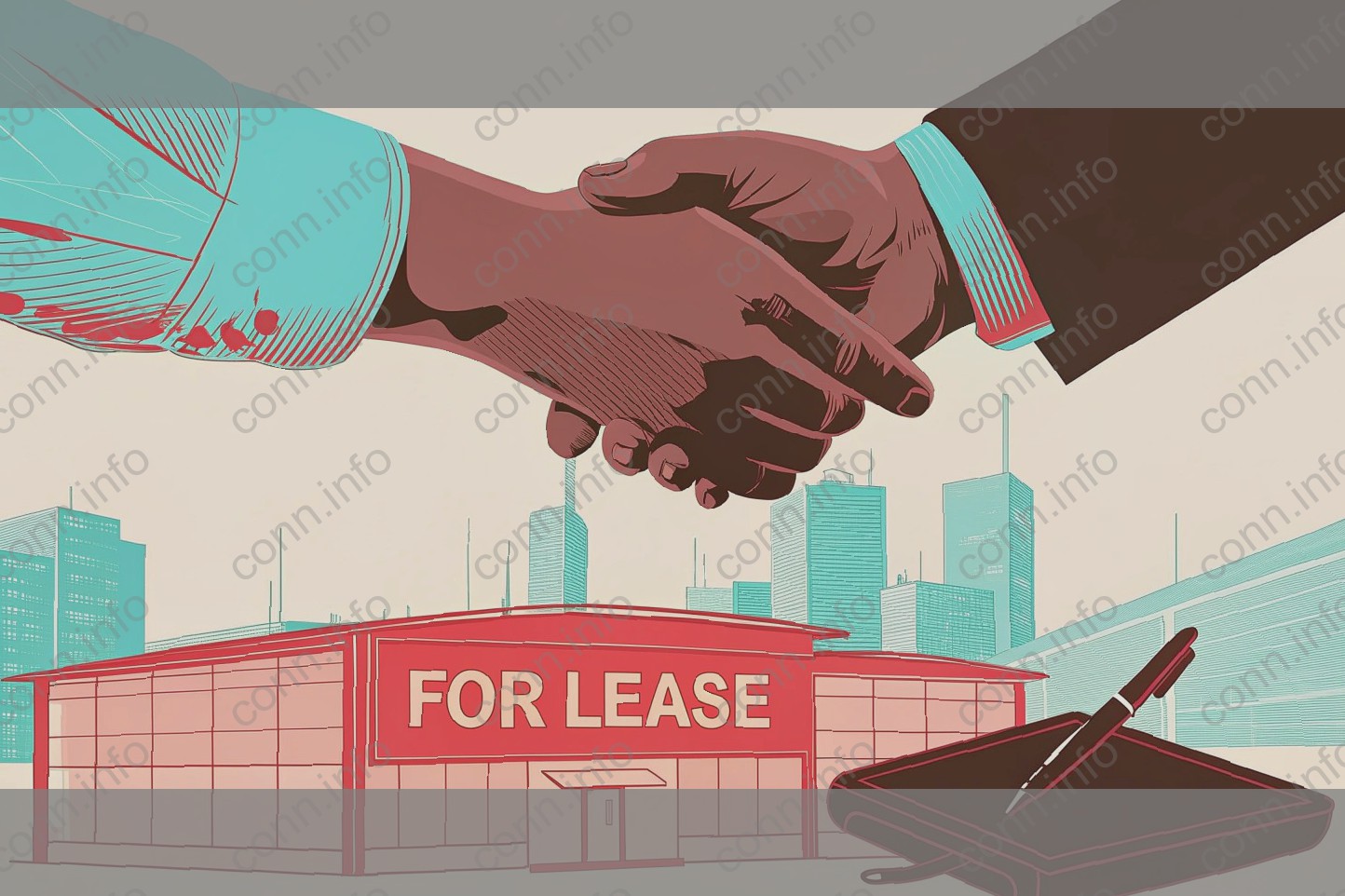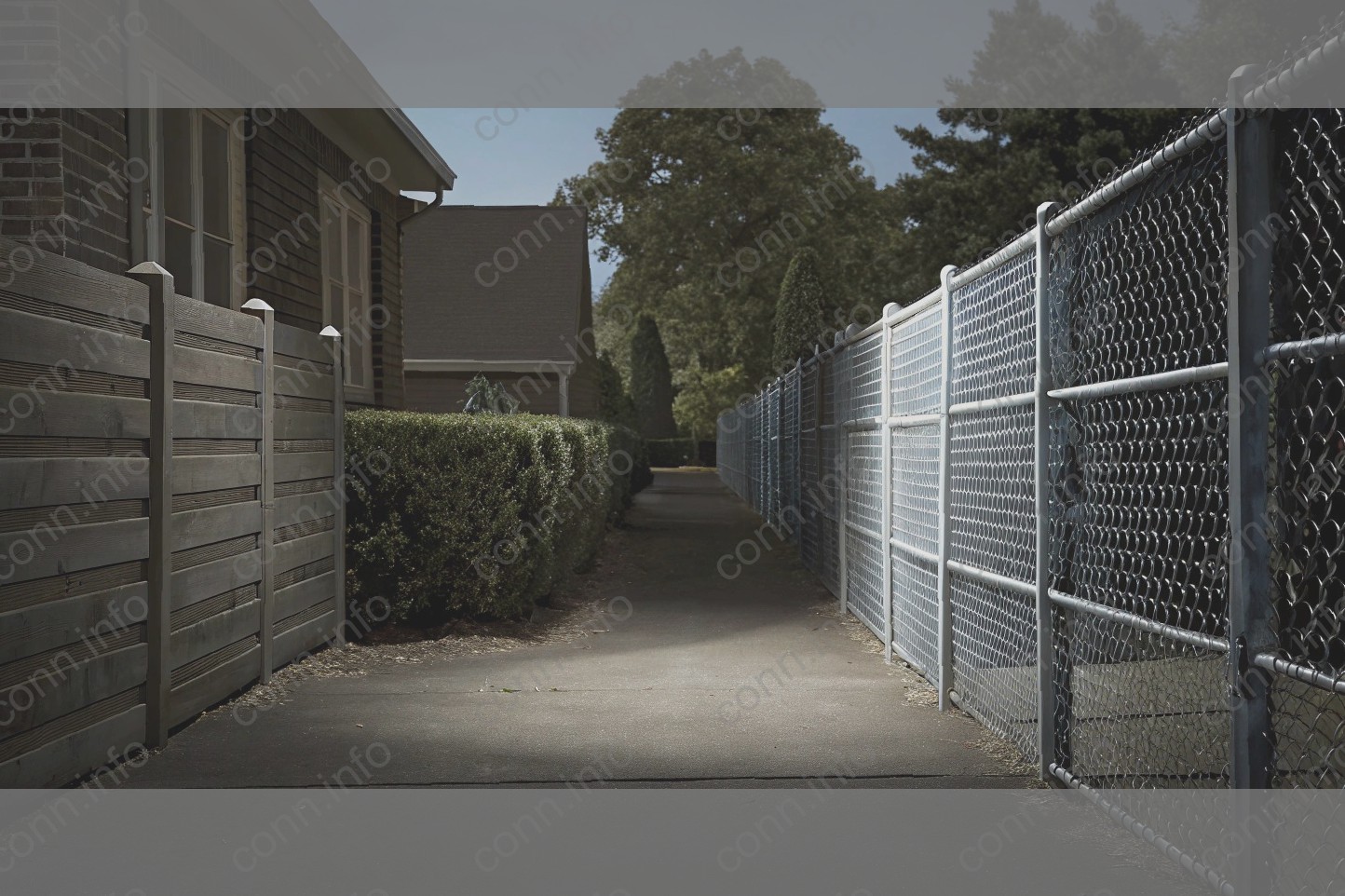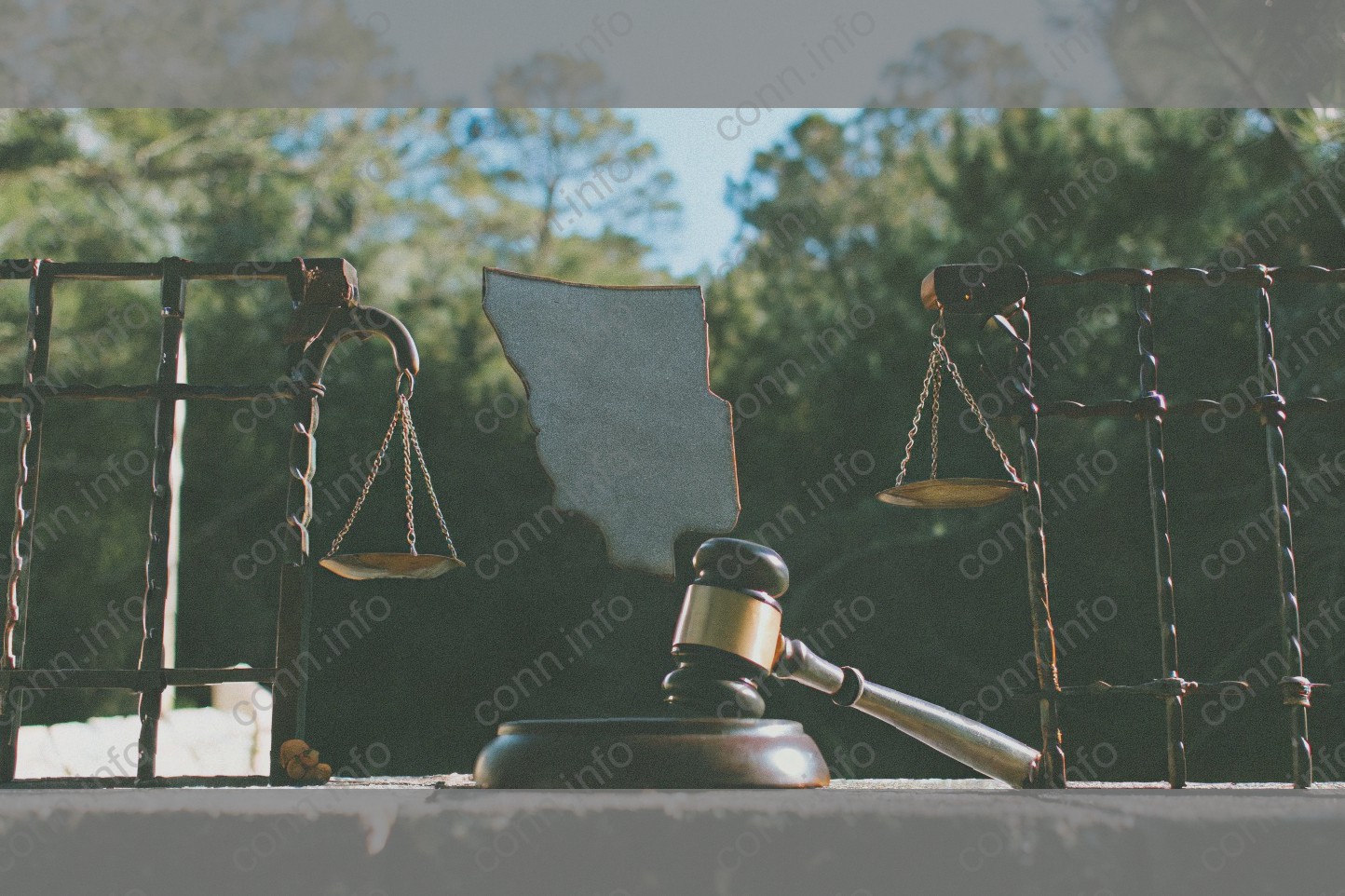What is a NJ Commercial Lease Agreement?
A commercial lease agreement in New Jersey is a legally binding contract between a landlord and a business entity (like a corporation, partnership, sole proprietorship, or limited liability company) to rent commercial property for business purposes. This type of lease agreement differs from a residential lease agreement, which is an agreement to rent property for personal, non-business use.
A commercial lease does not have the same extensive disclosure requirements that a residential lease agreement has, such as disclosures regarding the presence of lead paint, carbon monoxide, radon, and other hazards . With holding on to or returning your security deposit from a residential lease agreement, there are no restrictions on commercial lease agreements. The tenant and landlord are free to negotiate what will happen to the tenant’s security deposit under a commercial lease agreement.
A commercial lease agreement is a very important part of running a business because rented space is usually where all of the business’ assets will be stored and sometimes even the people who make the business run. It is also often the business’ most significant expense. Having a professionally drafted commercial lease agreement can ensure that there are no surprises for the business down the line.

Key Terms of a NJ Commercial Lease Agreement
New Jersey commercial leases typically include the following re-occurring and essential terms:
Rent: This clause states the payment structure for the property. In most commercial leases, rent is due monthly in advance. The lease may contain a clause which allows a rental increase over the term of the lease. The rental structure may depend on the type of lease.
Term: This is the duration of the lease. It includes when the lease begins and ends. An option to renew or extend may be included.
On many occasions, a landlord requires its tenant to sign a personal guarantee or a corporate guarantee. If you are signing a guarantee, consult an attorney for advice. Personal liability and your credit standing may be at risk.
Repairs and Maintenance: Who is responsible to maintain the building and property? Who will pay for the repairs? Generally, commercial tenants are responsible for the interior and exterior of the premises. Landlords have been successful ensuring their tenant bears the entire burden of repairs and maintenance even those not directly related to the tenant or the tenant’s use of the property.
Utilities: Who pays for services such as water, sewer, and electricity? Some leases require the tenant to reimburse the landlord. Others make the landlord pay for services. However, the lease may grant landlords the right to pass through any utility costs to the tenants. Commercial leases where the landlord pays the utilities may provide a rent credit for utility reimbursement.
Force Majeure: A force majeure term excuses performance in the event of an act of God, such as a fire, flood, earthquake, war, etc. The parties may agree to a rent abatement or other provision.
Alterations: A tenant may want to make improvements to the premises. This clause states that the tenant shall submit plans to the landlord for approval prior to performing any work on the real estate. Additionally, it may provide that the landlord may approve certain work without permission, or that works less than a specified dollar amount will not require approval.
Permitted Use: What will the premises be used for? Is the tenant restricted to performing only certain work on the premises? This clause also may contain restrictions on signage or outside storage.
Assignment and Sublet: This clause lists the process to assign and/or sublet the property and whether this process requires landlord approval.
Legal Requirements for a NJ Commercial Lease
"Commercial leases in New Jersey are agreements entered into for the lease of space to be used for business purposes – industries ranging from warehousing to retail, and everything in between," he adds. "These leases are somewhat different than residential agreements in that they can be negotiated for extended periods, regardless of whether or not there has been a prior relationship between the parties. They are often quite complex and lengthy."
There are also the legal requirements of New Jersey commercial lease agreements that must be followed. While there are no specific state-specified requirements for commercial leases as there are for residential leases, which must contain certain provisions, commercial leases are subject to specific remedies and rules under the Property subject to Rent Party Act, the N.J.S.A. 2A:42-6.2, et.seq.
According to this law, for the lease of space in industrial, office or multiple dwellings, a written agreement is required that sets forth the terms essential for the intent of the parties, including the names of the parties, the description of the space to be occupied, including its disposition and rental, as well as the term of the lease.
Tips for Negotiating a NJ Commercial Lease
Both landlords and tenants need to do their homework before entering into the lease. While a commercially reasonable landlord may be happy to make some concessions during negotiations and is usually willing to work with its new tenant, not customarily extending favors to its commercial tenant’s agent or lawyer, its good neighbor approach usually stops with the time it takes to usually negotiate its standard lease form to the extent necessary to satisfy the tenant (and tenant’s lawyer) that its interests are sufficiently addressed in the lease. Standard landlord form leases are usually comprised of a combination of provisions drafted: (a) as trade or industry practices identified by the landlord’s lawyer; (b) in the landlord’s or landlord’s broker’s due diligence responses (i.e., use specific language in the lease which effectively results in no further due diligence work being completed by its leasing team once the lease is signed); and/or (c) a combination of language usually included in its leases and how other similar provisions are structured in existing leases in its portfolio. The leases are not necessarily tailored to the specific circumstances of every lease. Historically, the responsibility to address the specific needs of the tenant and its business belongs overwhelmingly with the latter. The compromise, however, may take the form of a reduced rent or free rent period at the beginning of the lease, or a rent abatement during a non-lease period (e.g., in cases where the tenant is not able to open for business at the premises simultaneously with the "commencement date" of the lease). The landlord’s decision to agree to the tenant’s requests will depend on many factors including, for example, whether the industry is flourishing or suffering, the length of the lease term, size of the space, the specific location, whether the tenant faces competition in the vicinity of the premises, whether the proposal/request is consistent with the structure of lease proposals requested by other tenants, and how long ago a lease was signed for the same space, etc.
Although a new lease in New Jersey is an agreement to be "freely debated" by the parties and for most third-party purposes does not create any binding obligations once signed, a party’s ability to negotiate acceptable, favorable and/or specific lease terms is largely dependent on the tenant’s relative leverage in the negotiations vis-à-vis the landlord. Specifically, optimum leverage usually occurs where: (a) it is a tenant’s market and the status quo favors the tenant; or (b) the tenant is a significant tenant in the market (e.g., a national credit-worth tenant characterized as a significant, "super" tenant), and the landlord is keeping the tenant happy by not pushing back too hard on the tenant’s requests for lease modifications, to ensure that the tenant does not select another space or location.
Common Mistakes in Commercial Lease Agreements
The signing of a commercial lease, while in many ways akin to signing a residential lease, is a process that requires much more diligence and caution than the typical residential lease. It is not unusual for a landlord to seek to maximize profits and extract the most money for a space/equipment/personnel/other from a new tenant. At the same time, in the right circumstances, it is possible that a tenant may be able to negotiate certain provisions of the lease to its advantage. It is therefore important for anyone who is intending to enter into a commercial lease to have a good understanding of both what their interests are in that lease and what potential pitfalls may exist.
One of the first mistakes that a tenant can make is to sign a lease without understanding the cost structure of the lease agreement. This does not just mean the monthly rent, but all forms of cost such as Common Area Maintenance Fees (CAM fees), insurance and property taxes. These costs can vary widely based on the particular location the leased space is found in and these expenses can make up a substantial portion of the monthly rent a tenant must pay.
Another problem can be poorly defined or vague lease provisions. Crucially , both external and internal conditions of the property must be specified. For example, if a business intends to be running on the premises of the lease, it must be permitted to post signs and designate parking. It is also important that the lease agreement specifies employer preference and policies as to who to call should such an issue arise. If, for instance, a sign is downed because of a storm or if the tenant has not been granted permission to park a truck, it is important that there be clearly outlined policies to give tenants the information they need to resolve these issues quickly.
A final potential landmine is not specifying exactly how repairs will be managed and who will be responsible for their costs. Each party, landlord and tenant, can either benefit or be harmed by the specifics of the repair policy. If, for instance, a large piece of storm damage hits the building, a greedy landlord may attempt to blame the tenant for the damage even if it was nothing a tenant could do differently that would have made a material difference. Conversely, a greedy tenant may attempt to leave the landlord to pay for a large repair that was clearly their fault. Having clear policies in place will prevent tensions from getting out of control.
Ending a Commercial Lease in NJ
In New Jersey, the voluntary termination of a commercial lease agreement is governed by the terms of the lease itself. Like all contracts, a commercial lease often contains the obligations and responsibilities of each party (the lessor and the lessee). If a lease provides any conditions under which it may be terminated early, the parties must abide by those terms. In the absence of such a provision, the parties can negotiate the termination of the lease at any time.
When a commercial lease does not contain a termination clause, one party to the lease may not be able to terminate the lease on its own. In those instances, both parties must agree to the termination of the lease, either in writing or in an oral agreement. If only one party seeks to terminate the lease, they must be prepared to stand by their rights under the agreement.
Prior to entering into a commercial lease agreement, the parties should agree upon a process to be followed should either party wish to terminate the lease prematurely. By considering such questions as "How much notice must be given before terminating the lease?" or "Will a penalty be imposed on the party terminating the lease?" the parties may be able to establish a protocol for an amicable termination in the future.
When to Hire an NJ Commercial Lease Lawyer
It’s critical to seek legal assistance before signing or drafting any lease agreement in NJ. An experienced attorney may be able to identify potential risks to your business, even ones you have not considered. If you are the person tasked with reviewing new leases for a business, before you agree to any terms it’s a good idea to speak with an experienced attorney.
Even if the agreement is relatively straightforward , an attorney will be able to review the finer points of the lease for you. Many commercial leases are written with the intent to reduce the level of risk for the lessor. A careful review of the lease is a good opportunity to assess how you might more evenly share some risks and reduce the chances that you will be held to some onerous conditions.
There are many situations which may end up costing your business considerably more than you anticipated. For instance, while you may not be concerned about the "returnable security deposit" required by the landlord, you should consider what happens if several years later your business and/or lease has been sold. Will you be able to collect or qualify for the returnable security deposit? It’s important to be aware of these elements even though most of the time they don’t present a problem.



